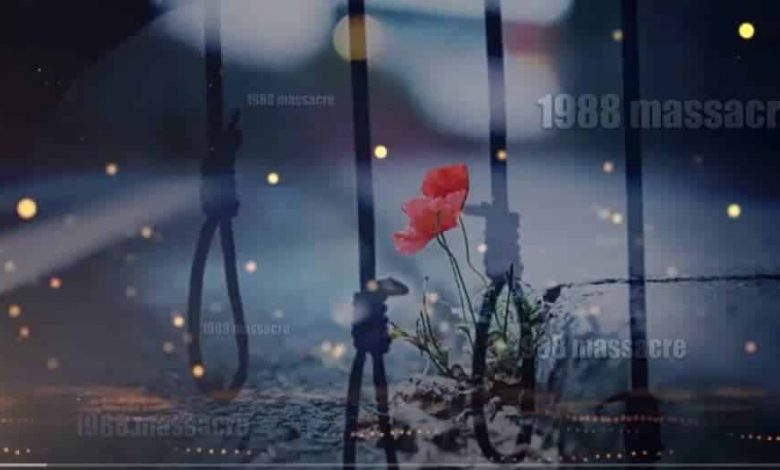All Nations Share Responsibility To Bring Iranian Regime’s Human Rights Abusers to Justice

Written by
Alejo Vidal Quadras
Last week, the National Council of Resistance of Iran hosted a vitally important virtual conference to discuss a 33-year-old crime against humanity for which no one has been brought to justice. More than 1,000 former Iranian political prisoners took part and some of them recounted the experience of appearing before “death commissions” in the summer of 1988 as the Iranian regime attempted to systematically annihilate the main opposition, the Mojahedin-e-Khalq (PMOI/MEK). A number of European politicians and experts on international law also addressed the conference to emphasize the need for accountability and the means by which that might be obtained.
I can only hope that the leadership of the European Union was paying attention to the conference, but I have little confidence that they were. As recently as August 5, the EU was reaching out to the Iranian government with open arms when it sent Enrique Mora, the deputy political director for the European External Action Service, to attend the inauguration of the Iranian regime’s new president Ebrahim Raisi. This decision blatantly ignored the fact that countless Iranian citizens and Iranian expatriates had loudly protested Raisi’s candidacy and urged the international community to do the same on the basis of his high-level involvement in the 1988 massacre.
Raisi, Butcher of 1988 Massacre in Iran
At that time, Raisi was serving as a deputy prosecutor for Tehran when, by all accounts, he eagerly seized the opportunity to become one of four officials who made up the Tehran death commission. Many of the former political prisoners who recalled their experiences last week also recalled seeing Raisi at their detention facilities and finding that he was especially active to pass death sentences quickly, often handing them down after speaking to a “defendant” for as little as a minute.
The MEK was explicitly named in Khomeini’s fatwa which set the stage for the massacre. The edict labeled MEK as enemies of God himself, a fact that some legal scholars in last week’s conference said qualified the 1988 massacre as an example of genocide aimed at wiping out those who believe in a moderate form of Islam that is incompatible with the mullahs’ fundamentalism. Of course, the 1948 Genocide Convention, as well as establishing those criteria, obligates all ratifying countries to take action against known perpetrators.
In sending a delegation to Raisi’s inauguration, the EU essentially legitimized the authority of human rights abuses and alleged perpetrators of genocide over all the functions of Iran’s judiciary and its entire executive branch. If the EU leadership fails to promptly reverse this decision by adopting at least some of the recommendations from last week’s conference, it risks not only letting the 1988 massacre continue to go unpunished by also emboldening Iran to undertake still more large-scale human rights violations.
The 1988 massacre of political prisoners in Iran- The Death Commissions-Aug 5, 2021
Raisi was already thus encouraged as judiciary chief when he oversaw key aspects of a violent crackdown on dissent following a nationwide uprising in November 2019. About 1,500 participants in that protest movement were killed almost immediately in mass shooting incidents and a further 12,000 were arrested. Many of those arrestees were then tortured over a period of months in various Iranian jails, as detailed in an Amnesty International report titled “Trampling Humanity.”
It was partly on the basis of that report and partly based on the organization’s longstanding awareness of the 1988 massacre that Amnesty issued a statement following Raisi’s “election” which condemned the fact that he “has risen to the presidency instead of being investigated for the crimes against humanity of murder, enforced disappearance and torture.” The report went on to reiterate a call for Raisi “to be investigated for his involvement in past and ongoing crimes under international law, including by states that exercise universal jurisdiction.”
Practically all of the politically and demographically diverse participants in last week’s conference repeated this appeal for an investigation and those with particular expertise in international law were keen to emphasize the potential role of universal jurisdiction. Eric David, a Belgian scholar of international law, affirmed the value of a UN investigation that might lead to prosecution of Raisi and others at the International Criminal Court, but he noted that such an investigation should be “encouraged without forgetting at any time that these are crimes that justify the application of universal jurisdiction.”
“If an Iranian regime official finds himself in any state on the planet… the prosecutor of this state can [lawfully] indict this person for the crimes committed in 1988,” David continued. “…The exercise of universal jurisdiction in all states concerning the perpetrators of these crimes raises no legal difficulty.”
The main obstacle to justice for the victims of the 1988 massacre is, therefore, not legal but political in nature. If the EU is prepared to stand up with its principles and respect for global human rights, it is time to stop turning a blind eye to the 1988 massacre. The EU should hold the regime to account for the genocide and present a resolution to the Security Council to send the case to the International Criminal Court.

Dr. Alejo Vidal-Quadras
Alejo Vidal-Quadras, a professor of atomic and nuclear physics, was vice-president of the European Parliament from 1999 to 2014. He is President of the International Committee In Search of Justice (ISJ)
All Nations Share Responsibility To Bring Iranian Regime’s Human Rights Abusers to Justice

